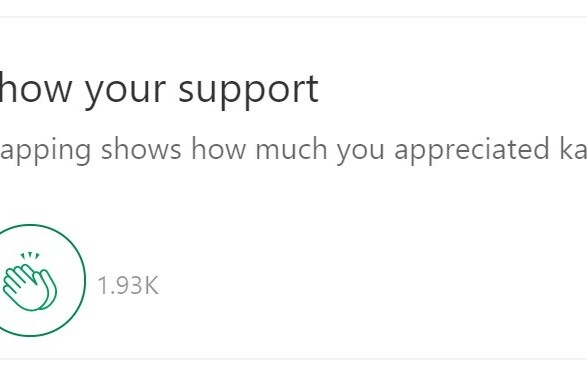
Medium, the minimalist blogging platform, is implementing significant changes to its model in a bid to both appeal to widen its pool of authors and readers and make its content more discoverable.
First up, there’s a new inline editor that takes a page from Twitter; it lives at the top of your homepage and is meant to help you get started writing as soon as an idea pops into your head.
You don’t have think up a title and formatting options have been simplified; you can just write a sentence or two and publish.

If you want more time, or need more space, however, you can click on the expand button to enter the full Medium editing interface.
Post streams on your homepage are also getting a new look. Now, shorter posts – like the ones you might create with the new editor – will show text right in-line to help you get started reading.
You can also now recommend and share these shorter posts directly from the stream.

The updated streams also apply to profile pages, where you’ll now see a featured or most recommended post, followed by a chronological stream of the author’s writing. As on the homepage, you can read the shorter stuff in-line.
The other major change is the shift from channels to tags. Instead of predetermined channels for posts to vaguely fall under, users can now create their own tags – up to three – to make their content more readily discoverable by users searching for writing on a specific topic.

It’s a smart move by the company, reflecting Medium’s growing popularity. A larger pool of users suggests more niches can develop to keep readers engaged.
Users will be prompted to add tags when publishing a new stories. Older pieces can be tagged retroactively with the Edit function.
When you click on a tag, you’ll be taken to a dedicated tag page, where you’ll see any of your stories along with others featuring the tag. If your post is recommended enough, it’ll be featured in the “Top” tab.
In addition to the new editor and post streams, your Medium homepage will now display trending tags as well.
While Medium initially became popular for surfacing quality, lengthy features, today’s changes indicate the company wants to do more than long stories. In a blog post, Founder Ev Williams writes:
It was not our intention, however, to create a platform just for “long-form” content or where people feel intimidated to publish if they’re not a professional writer or a famous person (something we’ve heard many times).
Moreover, the changes could help the platform win over some writers from other publishing sites. Tumblr, where posts tend to be short and impromptu, has recently moved in the opposite direction by introducing new features to encourage long-form writing.
➤ A Less Long, More Connected Medium
Get the TNW newsletter
Get the most important tech news in your inbox each week.





